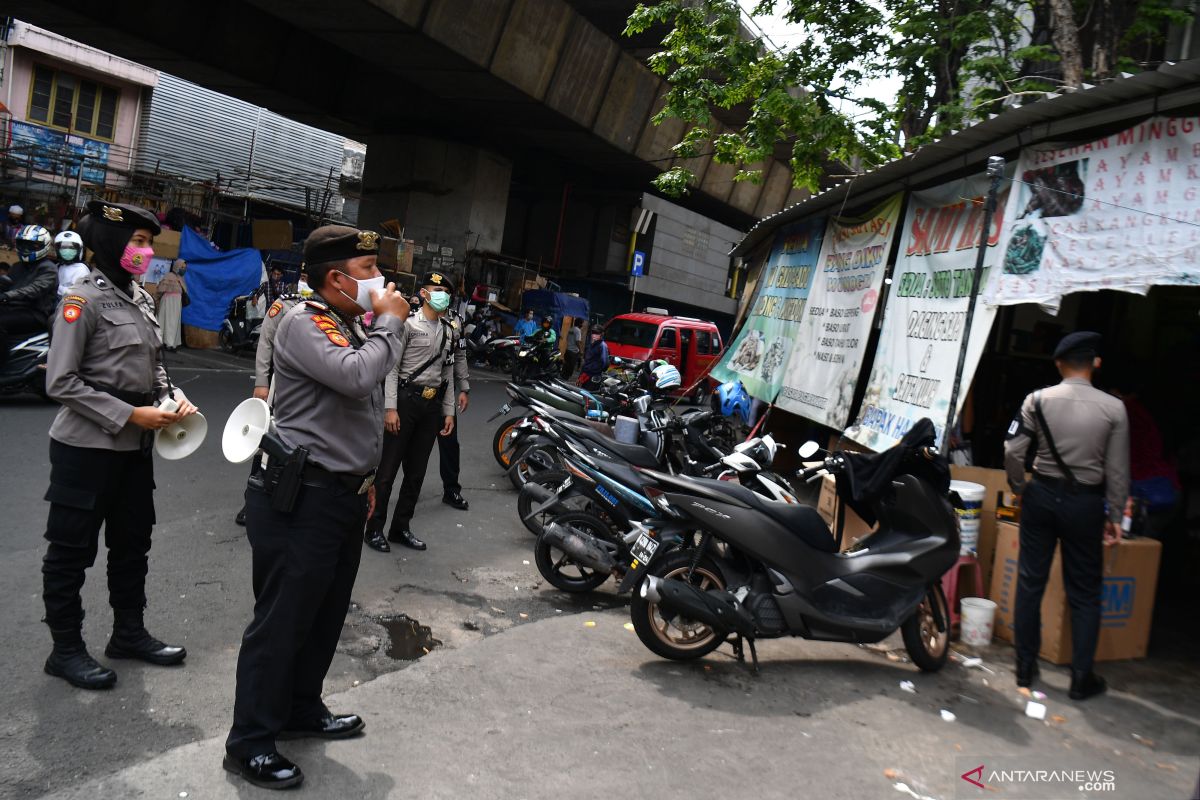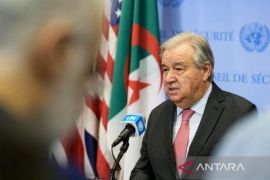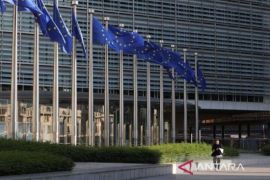
Police, military roped in to edify public on new normal protocols

Jakarta (ANTARA) - After imposing large-scale social distancing (PSBB) measures for less than two months, the Indonesian government has switched its focus to the implementation of a new normal amid the prolonged COVID-19 epidemic.
The decision has been prompted by indications that it may be a while before a vaccine against the deadly virus is developed.
The government has stressed that the new measure does not imply a relaxation, but is being promulgated as it has now become necessary to resume certain office and business activities as the country's economy, particularly the tourism industry, has been hit hard by the continued pandemic.
The novel coronavirus, which originated in Wuhan, China last year, has forced people across the world to change the way they lead their lives and find ways to co-exist with COVID-19 through the observance of health protocols to prevent an infection till the time a coronavirus vaccine is developed.
Under the new normal, people will be expected to carry out their daily activities while giving priority to personal safety and preventive measures against COVID-19.
In preparation for the transition to the new normal, the Health Ministry has been drafting health protocols to ensure that people stay safe and healthy while carrying out routine and productive activities.
As the new normal demands the public remain disciplined while adjusting to the new situation and abiding by health protocols, President Joko Widodo (Jokowi) has decided to involve the Indonesian Defense Forces (TNI) and police personnel in its implementation.
In the first phase, officers have been deployed at crowded points in four provinces and 25 cities and districts to ensure compliance with the new protocols.
"We have readied our military and police personnel for deployment," Jokowi said at a virtual meeting held recently to discuss the preparations for the new normal.
He has ordered the deployment of around 340 thousand military and police personnel at 1,800 locations in four provinces – Jakarta, West Sumatra, West Java, and Gorontalo — to ensure public adherence to the new normal protocols.
The aim is to edify the public on maintaining safe distance, wearing masks, washing hands, and refraining from joining large congregations, he noted.
On May 26, 2020, Jokowi reviewed the implementation of the new normal rules at Central Jakarta's MRT stations and shopping malls in Bekasi, West Java.
As per the government's directive, regions will be allowed to apply the new normal protocols if their basic reproduction number (R0), an epidemiological metric used to describe the contagiousness or transmissibility of COVID-19, is below one. Baseline transmission rates indicate the average number of secondary infections from a single source in a vulnerable population.
This is in accordance with the standard set by the World Health Organization, which stipulates that before applying the new normal, governments must meet several pre-requisites, including obtaining proof that coronavirus transmission is under control and setting up an efficient public health response system, including hospitals, to identify, test, isolate, and track contacts as well as quarantine COVID-19 patients.
As of Monday (June 1, 2020), Indonesia has registered 26,940 confirmed COVID-19 cases, with 7,637 patients recovering from the infection, and 1,641 others dying of the disease.
In the meantime, the National Police (Polri) Chief, General Idham Azis, recently confirmed the deployment of police officers at several public facilities, such as shopping areas, bus terminals, railway stations, and airports, is aimed at offering protection to, caring for, and serving the community.
Azis stressed the intervention by the Polri and TNI is unrelated to law enforcement, and instead, an effort to educate the public to adopt a disciplined approach in applying health protocols amid the COVID-19 pandemic.
"This is not law enforcement, but an effort to train (the community) to be disciplined (in implementing health protocols)," the four-star general clarified.
This holds significance since, in the new normal era, people will be given the opportunity to resume daily activities, so additional efforts are necessary to ensure they do not contract COVID-19.
For the capital city, the Metropolitan Police of Jakarta has readied 3,987 personnel in the early stages of preparations to implement health protocols.
Furthermore, in Central Jakarta, the TNI and Polri have jointly formed a database command to monitor public adherence to health protocols while implementing the new normal.
"Indeed, we, from the Menteng Police Sector (Polsek), Kodim, and Koramil (the local military offices), have readied a post that we will form into a mini post to collect data on violations and distribution in Central Jakarta, and the data will be updated later at both the Kodim (military regional command) and Polres (police resort)," Menteng Police Chief Adjunct Senior Commissioner Guntur Muhammad Tariq remarked.
Seventy-five percent of the officers-in-charge will be drawn from the military and 25 percent from the police, he said.
Violations under monitoring will encompass failing to wear gloves and masks and flouting physical distancing, outlined in the health protocol promulgated for both the PSBB as well as the new normal, he added.
"We will also distribute masks in addition to educating the public. The data will offer an insight into the behavior of the public, including their compliance with the health protocol. Everything will be recorded in the command post," he explained.
The database command posts will be set up at eight locations in Central Jakarta, while monitoring posts will be formed at MRT stations along Jalan MH Thamrin, and on each floor of shopping centers, among others.
"I think all regions in Indonesia can take a cue from this," he remarked.
Pewarta : Fardah
Editor:
Sukardi
COPYRIGHT © ANTARA 2026







